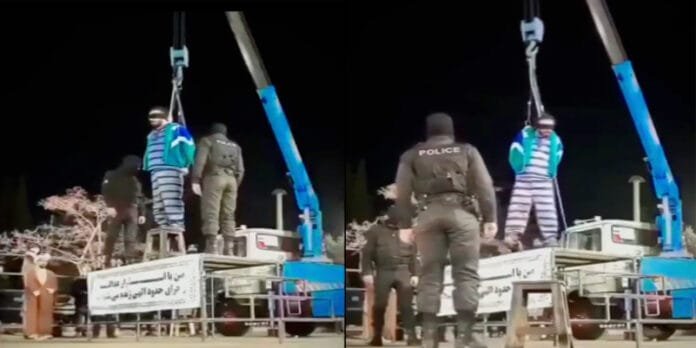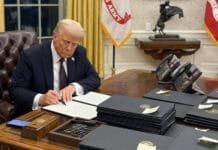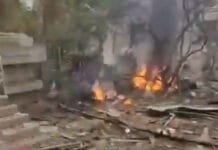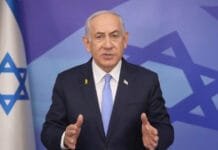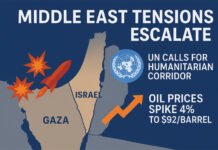Iran Cracks Down on Mossad Networks Immediately After Ceasefire
Within just 24 hours of announcing a ceasefire with Israel, Iran escalated its internal crackdown, targeting individuals allegedly linked to the Israeli intelligence agency Mossad. In a sharp and rapid response, three more prisoners were executed on charges of espionage for Israel, bringing the total number of executions to six. The executions were carried out in Urmia Prison, located in the West Azerbaijan province, and involved Azad Shojai, Edris Ali, and Rasul Ahmed Rasul, an Iraqi national.
According to Iran’s judiciary, the trio was accused of smuggling weapons and assassination equipment into the country, allegedly part of an extensive network working against Iran’s strategic interests. These individuals were reportedly embedded within Iranian borders, tasked with disrupting internal stability and targeting sensitive nuclear sites.
Over 700 Arrested in Sweeping Espionage Operation
The Iranian intelligence apparatus has launched what appears to be its largest domestic anti-spy operation in recent memory, arresting more than 700 individuals suspected of affiliations with Israeli intelligence. This wide-scale arrest campaign follows the devastating exchanges during the Iran-Israel conflict that erupted earlier this month.
Iranian officials allege that several detainees were involved in intelligence leaks related to nuclear infrastructure, including Fordo, Natanz, and Isfahan facilities. These individuals are being interrogated under high-security conditions, with more arrests and executions expected in the coming days, according to judicial sources.
Executions Rise Amid Fear of Further Espionage
The Iranian regime’s recent actions reflect a heightened state of alert following Israel’s multi-pronged attacks during Operation Rising Lion. Human rights observers and international activists have expressed concern over secret trials, lack of legal representation, and the accelerated pace of executions. However, Tehran continues to assert that the executions are legally justified and essential for national defense and counterterrorism.
Several of those executed were previously convicted behind closed doors, with Iran’s Revolutionary Court citing “clear evidence of collaboration with foreign intelligence”. Authorities claim these operatives transmitted coordinates of critical infrastructure to Mossad, facilitating precision strikes by the Israeli Air Force during the recent conflict.
Operation Rising Lion: The Spark of Escalation
The current chain of events was triggered on June 13, when Israel launched its largest-ever coordinated aerial campaign targeting Iran’s nuclear and military infrastructure. Dubbed Operation Rising Lion, the offensive included strikes on Isfahan, Natanz, and Fordo—key locations in Iran’s nuclear development program.
Israel’s operation was carried out in tandem with high-altitude surveillance, cyberattacks, and alleged infiltration of Iranian radar and communications systems. In response, Iran launched Operation True Promise 3, deploying a barrage of missiles and armed drones toward Israeli defense bases and critical installations.
US Intervention Fuels Regional Instability
The already tense standoff between Iran and Israel reached a dangerous new level when the United States entered the conflict. Following Iranian retaliation against US assets in Qatar and Iraq, American forces carried out precision airstrikes on Iran’s nuclear sites.
The Pentagon confirmed strikes on Fordo, Natanz, and Isfahan, citing the need to disable potential nuclear escalation. Iran viewed the US involvement as an act of war, prompting further escalation. Ballistic missiles were fired into Israel in retaliation, even as US diplomatic teams attempted to de-escalate the regional crisis.
Ceasefire Announced, But Hostilities Persist
Despite former US President Donald Trump’s announcement of a ceasefire agreement between Iran and Israel, the situation on the ground remains highly volatile. Just hours after the announcement, the Israeli Air Force bombed a radar installation north of Tehran, triggering a swift counterstrike from Iran involving two ballistic missiles.
These post-ceasefire hostilities raise serious questions about the stability of the truce and whether either side is genuinely committed to de-escalation. Iran’s simultaneous execution of Mossad-linked prisoners signals its uncompromising stance on internal threats amid international diplomacy.
Public Tries to Resume Normal Life Amid Crackdown
While the government continues its crackdown on alleged spies, ordinary Iranians are trying to return to everyday life. In cities like Tehran, daily routines are cautiously resuming. The Caspian Sea region has seen a surge in traffic, indicating that citizens are attempting to rebuild some semblance of normalcy after weeks of bombings and political uncertainty.
Still, there is a palpable tension across the country. Security checkpoints have increased, and surveillance measures have been expanded in urban and border areas. Many fear that further executions are imminent, especially as investigations continue into the 700+ detainees.
International Response: Cautious and Divided
Global reactions to Iran’s execution spree have been mixed. While some nations have called for adherence to international human rights norms, others have expressed tacit support for Iran’s national sovereignty and right to self-defense. The United Nations has urged transparency and due process, but Iran maintains that its internal security measures are non-negotiable during times of conflict.
Diplomatic circles remain wary of how this crackdown might impact future nuclear negotiations, particularly in light of recent sabotage operations allegedly carried out by foreign actors. Tehran’s leadership insists that national security takes precedence over any international dialogue until the situation is stabilized internally.
Conclusion: The Shadow War Continues
Though missiles may have temporarily stopped flying, the shadow war between Iran and Israel persists. Executions, arrests, and espionage allegations continue to dominate Iran’s post-ceasefire narrative. The government’s swift and harsh response suggests an ongoing internal war against perceived foreign infiltration.
As the world watches closely, one thing is certain: Iran’s approach to national security has shifted. With more executions on the horizon, tens of thousands under surveillance, and foreign relations at an impasse, the stakes for regional peace have never been higher.

